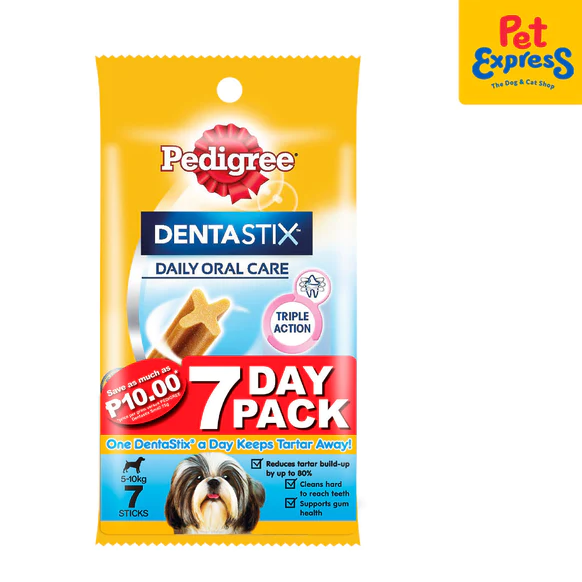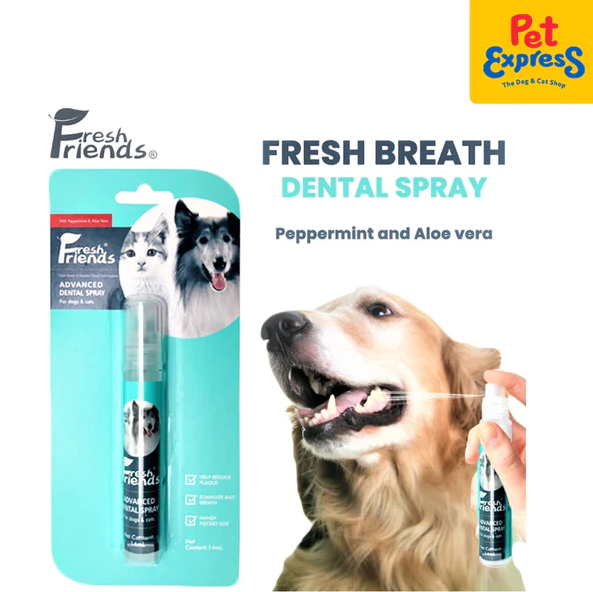Here’s Your Guide to Pet Dental Health: Strong Teeth and Fresh Breath for Your Furry Friends
As dedicated pet owners, we love our pets' playful antics and unconditional love. However, in all the fun, we often forget about an important part of their well-being: dental hygiene. Just like us, our furry friends need to take good care of their teeth to stay healthy.
Good dental hygiene is essential for pets and it can greatly impact their overall health and lifespan. In this blog, you’ll learn how you can help your furry friends live a long and healthy life, free of dental issues.
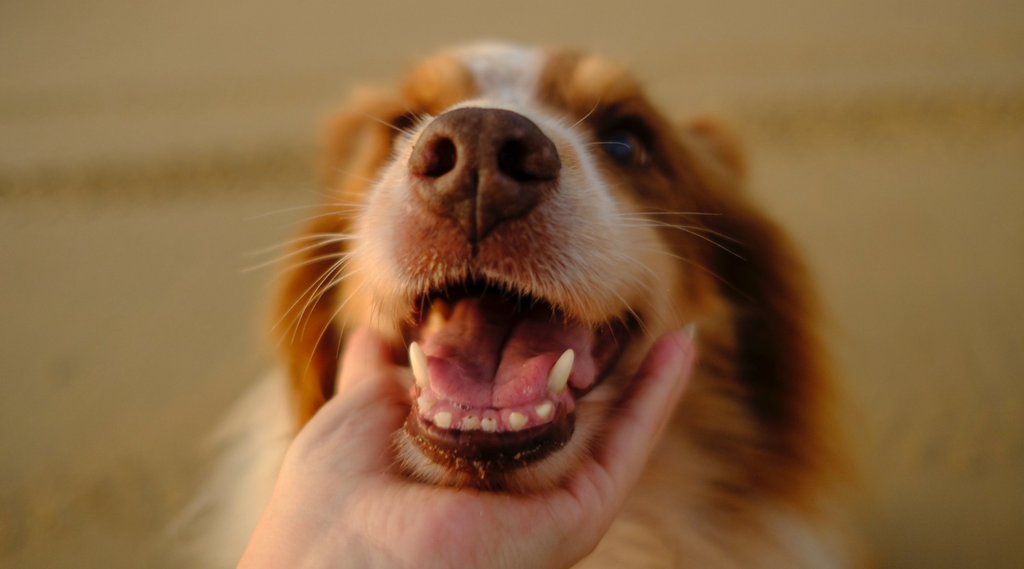
Common Dental Problems in Pets
From plaque buildup to tartar accumulation and gum disease, these oral problems affect our pets too. Here are some of the common dental problems that we do not want our pets to experience, ever:
1. Plaque Build-up
Plaque is a sticky, colorless film of bacteria that forms on the teeth. If not removed, it hardens into tartar. It's a common indicator of various dental problems in pets. The bacteria in plaque produce acids that can eat away at the enamel on your pet’s teeth, which can lead to cavities.
Plaque can also irritate your pet’s gums, causing them to become inflamed and red. If left untreated, gum inflammation can progress to periodontal disease, damaging the bone that supports the teeth.
2. Tartar Build-up
Tartar is a hard substance that forms on the teeth. It's a combination of plaque, a sticky film of bacteria that forms on your pet’s teeth, and minerals from your saliva. Tartar can build up on the crowns of your pet’s teeth and the roots below the gum line.
Once tartar forms, it's hard to remove with brushing and flossing alone. You'll usually need to have it removed by a dentist, and in your pet’s case, a veterinarian.
3. Gum Disease (Periodontal Disease)
This disease is a chronic inflammatory condition that affects the tissues surrounding and supporting the teeth. It starts with inflammation of the gums or gingivitis and progresses to more severe stages, causing damage to the gums and even tooth loss. Like in humans, periodontal disease in pets progresses through several stages, each with symptoms including bad breath, red, swollen, or bleeding gums, excessive drooling, and more.
If your pet is showing any of the signs of periodontal disease, it is crucial to take them to a veterinarian for treatment. Early diagnosis and treatment can help to prevent or slow the progression of the disease and reduce the risk of complications.
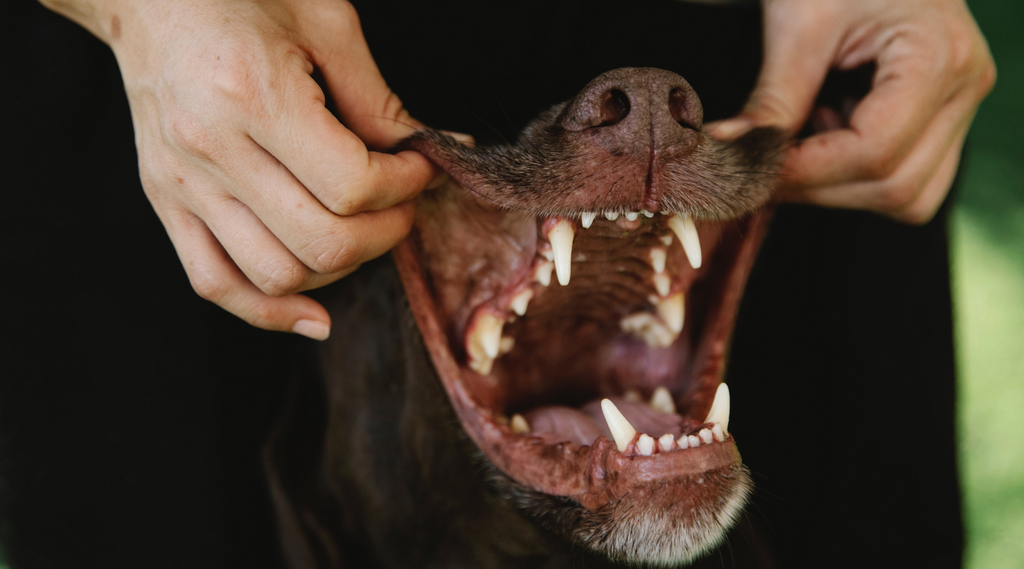
Signs and Symptoms of Dental Problems in Pets
Pet owners need to be on the lookout for signs of dental issues in their pets. If any of the signs below are observed, it is important to take your pet to the vet right away to prevent the problem from getting worse.
1. Bad Breath (Halitosis)
Persistent bad breath is often a sign of dental issues in pets. It's caused by the buildup of bacteria in the mouth. This bacteria can cause inflammation and infection, which can lead to pain, difficulty eating, and even tooth loss.
2. Swollen or Bleeding Gums
Gingivitis is the first stage of gum disease in pets, and it's often recognized by inflamed or bleeding gums. The accumulation of plaque contains harmful bacteria that irritate the delicate gum tissues, leading to redness, swelling, and tenderness.
3. Discolored Teeth
Yellow or brown stains on the teeth may indicate tartar buildup. Tartar can cause the teeth to become discolored and can also lead to gum disease.
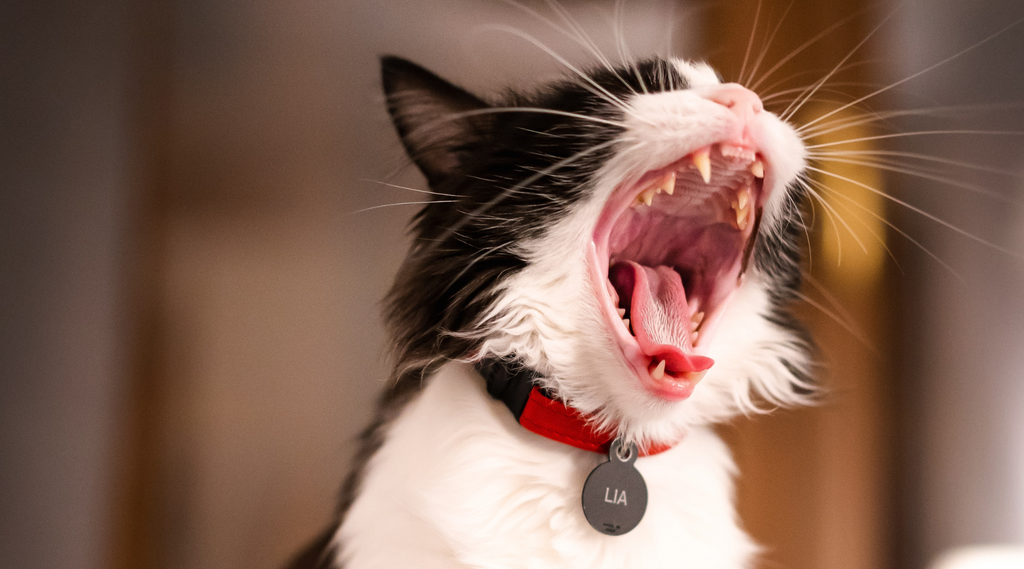
4. Difficulty Eating or Loss of Appetite
Pets with dental issues might struggle to eat or avoid certain foods due to pain while chewing. This can lead to weight loss and malnutrition, as well as other health problems.
5. Pawing at the Mouth
Pets, like people, can show discomfort in subtle ways that can be easy to miss. If you notice your pet frequently pawing at their mouth, rubbing their face on surfaces, or showing signs of discomfort while eating like hesitation, dropping food, or chewing only on one side, it could be a sign of dental pain.
6. Excessive Drooling
Excessive drooling in pets can often be a sign of underlying dental issues or mouth discomfort. It is usually defined as an unusual amount of saliva produced beyond what’s normal for their breed or usual behavior,
7. Changes in Behavior
Pets may act differently when in pain, which could be a sign of dental issues. For example, they might be more irritable, aggressive, or reluctant to be touched around their mouths.
8. Loose or Missing Teeth
Gum disease that has progressed to a severe stage is called periodontitis. It can have a serious impact on a pet's dental structures. If left untreated, it will get worse and cause significant damage to the teeth, which can extend beyond the gums and affect the ligaments and bones that hold the teeth in place.
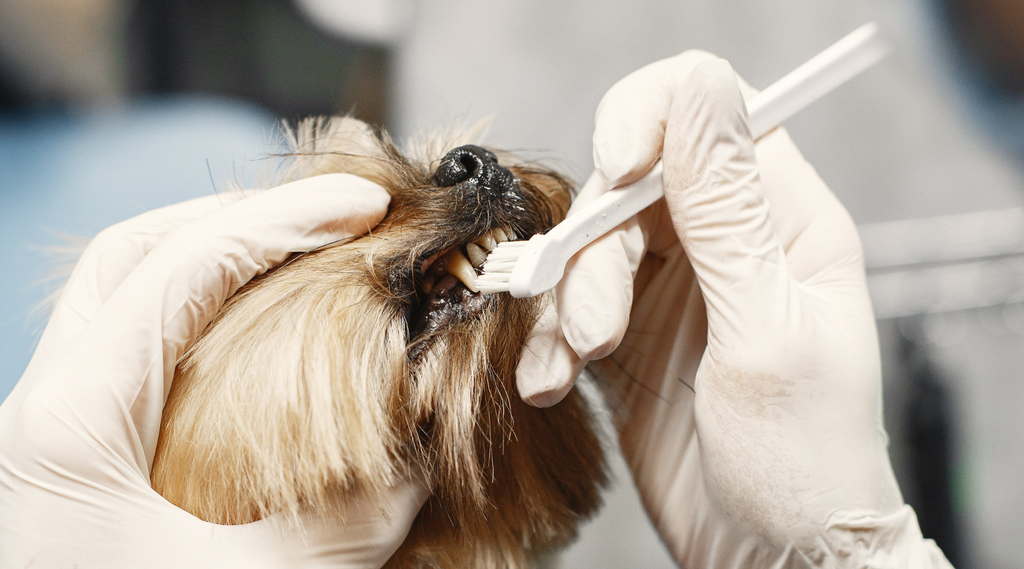
Pet Express’ Tips for Strong Teeth and Fresh Breath
Ready to get started in keeping your furry friend's smile sparkling and breath fresh? Pet Express is here to give you easy-to-follow tips and tricks for strong teeth and kissable breath for your dog or cat.
1. Initiate Gradually
To help your pet get comfortable with oral care, start by gently touching their mouth and gradually introducing them to the taste of pet toothpaste.
2. Pet Tooth Brushing
Use a toothbrush or fingerbrush made for pets to remove dog teeth plaque. Put a small amount of pet toothpaste on the brush and gently brush their teeth in a circular motion. Focus on the outsides of their teeth.
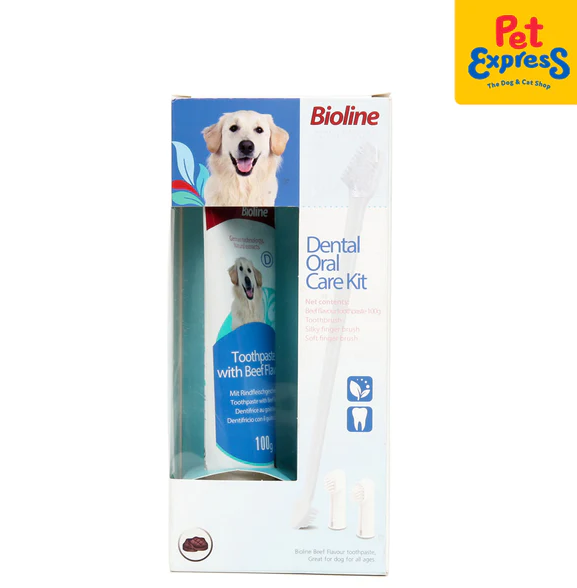
Bioline Beef Dental Oral Care Kit
3. Consistency is Key
Brush your pet’s teeth regularly, ideally 2 to 3 times a week, to maintain good dental hygiene. Increase the frequency if your pet adapts well and as your vet recommends.
4. Incorporate Dental Treats
Give your pet dental treats as part of their routine. These treats help remove plaque and promote oral health, while also being a tasty treat for your pet.
Pedigree Dentastix Small 5-10kg Dog Treats 7s 110g (1 week)5. Use Specialized Oral Care Products
Keeping your pet's smile dazzling and breath kissable goes beyond brushing your pet’s teeth. There are dental products available in the market specifically designed for pets so you don’t have to rely on human products or homemade remedies.
Pet Express offers a treasure trove of specialized oral care goodies for dogs and cats, like pet breath freshener sprays, all formulated for furry chompers. Check out our wide variety of oral care products for pets, including dog teeth-cleaning toothpaste, teeth-cleaning products for dogs, and oral care kits made just for pets.
Fresh Friends Advanced Breath Freshener Dental Spray 14ml
6. Regular Vet Check-ups
Make sure your pet sees the vet regularly, ideally every six months. These visits are important for checking your pet's oral health and making sure any problems are caught early.
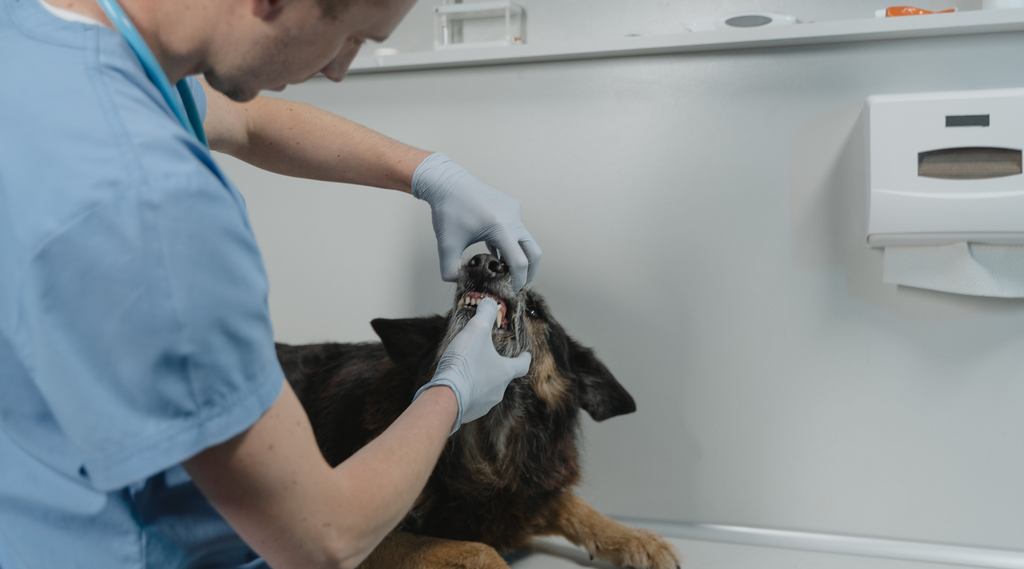
Dental Health for Dogs and Cats: The Takeaway
Keep in mind that consistency, patience, and a combination of oral care practices, including regular vet visits and the right products from Pet Express, are essential to ensure your pet's bright smile and overall well-being.
Your pet's precious teeth need some Tender Loving Care! Check out Pet Expres’s wide selection of dog dental care products for dogs and cats, including pet toothpaste, toothbrushes, and dental chews. Give your furry friend the best oral care possible to ensure a long, healthy life.
Shop at Pet Express stores or online today!

